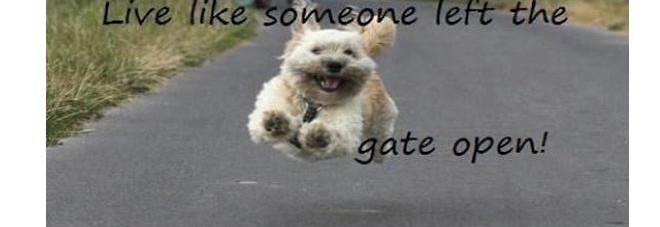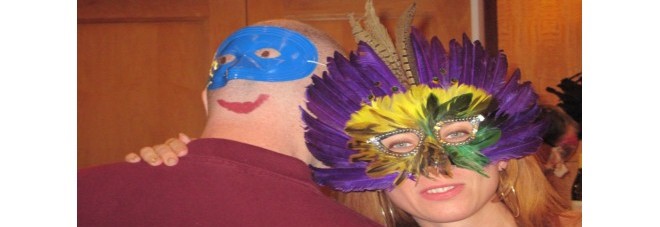Taking Stock of Your Best Personal Practices to Improve Your Happiness and Your Life

April 4, 2015 | Posted in Leading Hartfully, Living Hartfully | By Gaia Hart
You know how businesses regularly share best practices with each other or study their competitors or benchmark other industries and copy their best practices, right? It’s how they improve in areas they’re not so great in. Well, how about taking inventory of your own personal best practices and sharing them with your mentors, coaches, friends or other role models to lift everybody up? When groups of people get together to do what they do best, they thrive. It gives them energy do to what they like to do and feel successful at doing. When they spend most of their time trouble-shooting, putting out fires and fixing problems, they become exhausted, unhappy and inefficient.
Focus on how you best run your life and build on it and take from others what they do best and see if it fits. If it doesn’t, throw it out. Gain energy by building on your successes and not fixing your failures. This is a great exercise for your mastermind group or success team or personal board of directors – whatever you call it – your support system. These are gleaned from the good folks at Canyon Ranch Spa.
Here are some constructive questions as a place to start. Now get out your pen and paper or digital tablet and start writing/typing:
- What makes you happiest?
- When were you happiest?
- How did you become happy then?
- What do you like most about yourself?
- What creates that quality?
- How do you make that quality last?
- When did you have that quality the most?
- How could you create more of it?
- What gives you peace of mind?
- What brings out the best in you?
- Who appreciates you the most? Why?
- What are your primary strengths?
- What re your core beliefs?
- What values do you live by?
- Who is in your emotional support network?
- What best helps you feel creative?
- What are you doing when you feel at your best?
- Who are you when you’re at your best?
There are hundreds more similar questions to help us take stock of our best practices in every area of life. These should help you get started and light the fire to illuminate what may be hiding in the shadows. All the best in your personal Q and A session.
The 6 Tools to Happiness

January 4, 2015 | Posted in Leading Hartfully, Living Hartfully, Wealthy Woman | By Gaia Hart
We’ve been sold a bill of goods for what we believe will bring happiness. Most of these false assumptions center around consumerism and buying your way to supposed happiness through wealth. One of the leading scientists in the study of happiness, Dr. Ed Diener, interviewed 49 of the wealthiest people in America and found that their happiness levels were only slightly above average. Similar findings have been uncovered in happiness and wealth correlation studies of nations. Among the more economically advanced nations, America ranks sixth out of seven with Switzerland, Denmark and Canada ranking first, second, and third. Of course as you would expect, the least wealthy countries were also the least happy. There is a moderate ground to seek – enough wealth to take us out of direct need but not so much as it leads to distraction. It what Vicki and Joe Dominguez termed “the Point of Enoughness in their 1990’s book.
Another study by a preeminent happiness researcher, Dr. David Myers showed the percentage of people in America from 1956 to 2000 pretty much flat-lined as their disposable income skyrocketed up since around 1960. What these studies indicate is that money not only can’t buy you love, but it can’t buy happiness past a certain point of enoughness. Of course all the advertisers and manufacturers out there try to convince us that if we buy their product, then we’ll be happier. It’s simply not true, yet we buy into it every time we make a purchase of something not out of necessity. We are all living proof of the grand conspiracy if we have closets, drawers, and garages stockpiled with things we can live without. I can’t even count the number of people I saw this holiday season walking around carrying flat-screen TV boxes. It was really quite a sobering sight.
Here are six tools offered to you according to the book What Happy People Know to help dig out of the consumerism daze and lead you on the true path to satisfying happiness:
- Appreciation is the most fundamental happiness tool as it is the purest, strongest form of love. Research has shown that it is physiologically impossible to be in a state of appreciation and gratitude and fear at the same time. Love and gratitude are stronger than fear because they are products of the neocortex and not the lower brain. Something I’ve posted about in the past and will share again is the simple reply one of my spiritual leaders suggested in response to the ubiquitous greeting, “how are you?”, is to answer “Grateful, thank you. And you?” If you stop and think about how many times a day you are asked the question “How are you?”, you can only imagine how often you will disperse to the universe that you are grateful. It is a great way to remind yourself to remain in a state of appreciation.
- Choice, the book says, is the father of freedom and the voice of the heart. When we have no sense of choice, we feel deprived, defeated, and in despair which leads to depression, anxiety and a condition called learned helplessness. We have choices and most of the happy people have consciously chosen their path, while unhappy people tend to choose fear and give in to that automatic sense of fleeing or freezing. Use your intellect and spiritual senses and make wise choices. It reminds me of what Anthony Robbins teaches; you don’t have a money problem, you have a lack of ideas problem. You have choices.
- Personal Power is similar to character that gives you control over your feelings, your actions, your thoughts, your behavior and your fate. Take 100% responsibility for your actions and I do mean 100% responsibility to avoid victim status of what happens for you, not to you. When you have a good sense of personal power, you’re secure with who you are and what you have and are immune to what others say, think or do to you.
- Leading with your strengths and being bigger than your challenges and situations without giving in to fear. Taking a truthful assessment of your strengths and leading with them feels good and allows us to conquer everyday challenges and builds self-confidence. Success leads to bigger success and it continues to spiral up and out.
- The power of language and stories to create our world is a heady stuff. We don’t describe the world we see, we see the world we describe. How do you describe your life? What is your life story? What old stories are you hanging onto that you’ve outgrown? Language has the power to alter perception. What kind of language do you use? Are you saying you have to, want to, or get to do something? What message is that sending to your sub-conscious and to your body? The stories of our lives and the stories we tell ourselves become our lives – how do you see your life? What spin are you putting on the experiences in your life and the actions you take? We have the power of choice to tell healthy stories or horror stories.
- Multidimensional living which embraces three main components of relationships, health, and purpose, which is usually our work. Make sure you are putting energy into all three areas. Usually if we are unhappy, we discover we’ve put too much energy into one area or not enough in the other areas and our lives get lopsided. Because of our fear of scarcity and not feeling that we have enough, let alone not be enough, most Americans focus more on their work. I say work instead of purpose because in my work experience, most people have no clue as to their personal purpose. We can help you discover that very easily if you’re interested – it’s in your personal GPS system, Genetic Purpose System in your fingertips. We’re all born with our purpose and it was formed in utero for us. We just need to decipher what it is, but I digress….. Many research studies have concluded that we simply have this scarcity fear burned into our brains. Face the facts of the studies that no matter how much you have, you won’t feel that it is enough and then decide to be happy no matter what.
Just accept that we generally won’t feel we have enough and stop waiting to accumulate enough, whatever enough is for you, and make a decision to be happy with what you have. Enjoy the now and practice the six tools to happiness and the other guides to happiness over the past year and have fun re-creating happiness in your life. Happy New Year – may you be more happy this year than last and even happier next year as you practice the steps.
Happiness is a By-Product: The 12 Qualities of Happiness

December 8, 2014 | Posted in Living Hartfully | By Gaia Hart
Instead of the 12 days of Christmas, we’re talking about the 12 Qualities of Happiness as referenced in the book What Happy People Know. Happiness flows as a by-product from these qualities and is a much more positive by-product than those we are generally used to. Cultivate the following qualities and you will also be cultivating happiness. The more qualities you embrace; the more happiness springs forth and the more fear is pushed out of your life.
- Love is the opposite of fear both emotionally and neurologically. The antidote to fear is love and is the first step towards happiness.
- Optimism provides power over painful events and offers power over fear of the future and over regret for the past.
- Courage overcomes fear and helps you rise above the situation. Both fear and courage are pre-programmed into the neocortex of our brains. Courage is the quality that helps us survive and thrive.
- Freedom of choice
- Be Proactive and participate in your own destiny – create your future and your legacy.
- Security in who you are no matter what. Security in knowing that nothing lasts and that security is an inside job – not anything extrinsic which can be lost at any minute.
- Health and happiness are interdependent – we need both to sustain the other.
- Spirituality and the tranquility it brings to not be concerned about death but more concerned about not living fully.
- Altruism aids in giving you purpose and getting outside yourself – giving vs. getting mind-set.
- Perspective to see shades of gray and having the sense to turn problems into possibilities by not losing sight of the big picture in bad times.
- Sense of Humor to help shift our perspective.
- Sense of Purpose and knowing why you’re here on Earth. Doing the things you were meant to do. Did you know that we are all born with a life purpose? It is established in our fingerprints in utero and can be deciphered so you know exactly what you are supposed to be doing. If you’re interested in having a reading and knowing your true purpose through your personal GPS (Genetic Purpose System), contact me for details: Gaia@GaiaHart.com.
So why not cultivate these characteristics over the next few weeks. Why not take on some of them as your New Year’s challenge and see what happens next. I’m guessing a bit of happiness will come your way.
On Being Happy, How to Happify Your Life

July 1, 2014 | Posted in Leading Hartfully, Living Hartfully | By Gaia Hart
It’s a funny thing this happiness trend. Like when you buy a new car and then you keep noticing all the cars on the road like yours because it’s on your radar. I keep having these happiness studies, books, websites and articles drop into my lap while I wait at the car wash, doctor’s office, watching TV or on a teleclass where a book is referenced by my coach. I’m getting bombarded with happiness messages and just have to share the good news.
The latest one is a website called http://www.happify.com all about the science of happiness and how you can live a happier life be design. This website is no slouch, it was featured in Forbes, Fast Company, Redbook and Shape magazines and it has years of scientifically-based research behind it. Finally corporations are getting it that happy workers make for better business. When work is made fun, it gets done and good times lead to good business. Us folk in the recreation field have known that all along. I’m glad the corporate suits are getting clued in to how the bottom line is affected by how happy employees are in the workplace and at home. I write about it many years ago in How to Create a Happy Herd: the Contented Cow Syndrome as one of the cover stories in one of Stephen Covey’s magazines. I’m thinking of dusting it off and re-printing it for your reading pleasure.
Anywho…. back to the Happify website. They claim that spending a few minutes daily on fun, science-based activities and games can improve your life on many levels including: gaining confidence, boosting optimism, decreasing stress, building resilience to stress, improve relationships and conquer negative thoughts. Everybody seems to be getting on the gamifying bandwagon these days….like the website Lumosity – to train your brain to be smarter. Why not give it whirl and see how you can happify your life. There are lots and lots of articles for lots of areas of your life that can be happified. Happy reading….
More on Happiness and Your Health

June 1, 2014 | Posted in Leading Hartfully, Living Hartfully | By Gaia Hart
It begins with happiness. Happiness is not the end state. Happiness is the starting point that leads to all kinds of positive things in your life including your health. Choosing to insert moments of happiness into your day (I call them holi-moments instead of holidays), is like a string of pearls of joy. Stringing together all the pearls of happiness each day creates a happy, healthier life. Here are some of the things stemming from happiness as a secret ingredient. Extensive research in the Positive Psychology movement of the past couple decades has proven that happy people:
- Have fewer strokes and heart attacks
- Get sick less often in general – fewer colds, viruses and flu incidents
- Have a stronger immune system in general
- Have less pain and inflammation
- Sleep better
- Develop resistance to stress and adversity
- Enjoy improved work performance and success
- Have more fulfilling and longer-lasting marriages
- Attract more friends and are more social
- Are more altruistic and have a greater positive impact on society
- Attract more wealth
- Are more connected and active in their communities
- Have a larger network
- Live longer
The research is very clear that these things don’t lead to happiness. The exact opposite is true – that happiness leads to these positive outcomes. Happiness is the first ingredient to living a better life all the way around. We’ve had it backward for many years – thinking that IF we have these other things, THEN we’ll be happy. Now we have scientific evidence that the polar opposite is true – happiness comes first to attract these other things. Happiness is something we can do right now to start attracting these other things to us. Albert Schweitzer summed it up well: Success is not the key to happiness. Happiness is the key to success.”
The Science of Happiness and Your Health

May 2, 2014 | Posted in Leading Hartfully, Living Hartfully | By Gaia Hart
The study of the science of happiness has just recently caught up with what generally happy people already intuitively knew. In the past couple decades the science of Positive Psychology has learned:
- Happiness does not come from genetics, luck or chance
- Happiness has a lot less to do with circumstances than we originally thought
- Happiness is not the result of some big, momentous occasion or event or goal attainment – it is realized by all the little small, daily things that add up moment by moment
- Happiness is created by thing simply, daily things we decide to do – how we choose to move through the world
- Unhappiness is created by NOT choosing to do those simple, daily things that we recognize as the things that create our happiness – we must identify the things that we are doing first so we know which things to keep doing and keep putting in our lives so maintain our happiness and be consciously aware of the things we add to our lives that bring us joy and happiness as well as those things that create unhappiness and delete those things.
- Happiness comes from conscious living and living purposefully – being in tune with what you allow in your life and deciding what you do and what you don’t, having the feeling of being in control of how you live your life
Some other rules of the road for creating happiness stemming from the scientific research as part of the Positive Psychology movement:
- Keep a positive mindset and speak in positive vs. negative terms
- Make a regular practice of counting your blessings and focus on gratitude and appreciation
- Do kind things for others and help make the world a better place in the service of others
Keeping a positive mindset and speaking positive words is more powerful than most people realize. There was some amazing evidence of this at the third World Congress on Positive Psychology as reported by the Center for Disease Control. They linked the incidence of atherosclerotic disease county by county of the northeastern United States with the amount of negative words used by those counties as evidenced by the Twitter posts. The study had analyzed 40,000 words in over 80 million tweets and when the results were overlaid with a county-by-county analysis of heart attacks, it was nearly an exact correlation. The words used that were predictive of illness were expressions of anger, hostility, aggression, disengagement and lack of social support.
The study also revealed the correlation of positive attitude and lower risk of heart attacks in a county-by-county study with these maps also being nearly identical – similar to the negative words and more heart attacks. The positive words that correlated with health included fabulous, helpful share, great, interesting, gratitude.
Being in the personal development field for over 30 years; this “new” scientific evidence only certifies what many of the thought leaders, motivational speakers and experts in the field of human performance have been saying for decades. I’m very grateful there is now science behind what we’ve been touting for a long time. It gives more intellectual weigh and credibility to what we’ve been sharing with our audiences on the positive side effects of positive thinking. It has opened doors and opened the minds of many in the corporate world, in government and in the general public about how their mindset and the mindset of an organization has a great deal to do with the morale of the people and their performance.
Combining Fun and Effectiveness is good business. Often, those of us in the personal development field have found roughly 10 % of those in our audience are really attuned to the positive thinking movement; but when you link that movement to the happiness movement, then the percentage of those who are willing to embrace it skyrockets to well over 50%. I haven’t yet met anybody who doesn’t want to be happy, though I’ve met many who want to be happier or even those who are happy, but didn’t know it because of their mindset and their choice of focus. How is your mindset? How are you choosing to be happy? Have you noticed what words you choose on a daily basis? Have you paid any attention to your tweets and Facebook posts and the type of words you are using? Try transforming your words and I bet you will begin to transform your life. I dare you…
Positive Psychology: What Happiness has to do With Your Personal Energy

April 10, 2014 | Posted in Leading Hartfully, Living Hartfully | By Gaia Hart
You may have noticed a theme here this year. I’ve decided to offer an alternating series on Happiness and Personal Energy. I’ve been researching, studying, living and making a living from educating others about how to improve both for their personal and professional lives as well as showing organizations how to improve both to beef up their bottom line. The two are intricately intertwined because a large majority of our energy is emotional energy. If our mindset is set on negativity, sadness, dark drama, emotional baggage and such; no matter how many energy inserts we add to our lives, we will still feel drained of energy.
The Positive Psychology movement gained a foothold about 20 years ago and it’s been a very interesting thing to watch this shift in the science of psychology. Martin Seligman, a Philadelphia psychologist is the father of the field of positive psychology and happiness. He began by asking “what if happiness was more than the absence of sadness and what if we could have a kind of psychology that focused on the positive instead of on the negative and what has gone wrong?”
Since that time, in January 2005 TIME Magazine ran a cover story on The Science of Happiness, then Fortune 500 corporations, the military, Harvard, the Federal Government and a growing mass of the public began to run with this theory. In 2010, Zappos CEO Tony Hsieh published his business memoir Delivering Happiness and it debuted on the New York Times Bestseller list at number 1. There is something to this happiness thing.
Contrary to what the Declaration of Independence says; happiness is not something we PURSUE, it’s something we DO…or rather an accumulation of the many little things we do every day. It’s HOW we decide to live our lives. One of the very best exercises I can share in pinpointing how to realize happiness in our lives is the Ideal Day writing assignment. I believe I’ve mentioned it before and it bears repeating because it is so powerful in its simplicity.
Find quiet time and get comfy to spend as long as you need to dream and visualize your Ideal Day and write it down in exquisite detail. Capture all the little things that bring you happiness such as fuzzy puppies, lush towels, down comforters, soothing smooth jazz music, fresh-squeezed pink grapefruit juice, 80% dark chocolate, cashmere…but I digress. Begin with when you wake up and move throughout your day and describe what your senses experience, what you do, how you do it and what your surroundings look like, sound like and feel like. Afterwards, do a gap analysis of your Ideal Day and your current life. What is missing? What can you easily insert into your current life from your Ideal Day? If you can’t focus on just one day. Do what I did and write down your Ideal Day for the Fall/Winter and one for the Spring/Summer because mine included skiing to sailing and I needed more than one day to capture it.
Next, look at your gap analysis and see what you already have in your current life from your Ideal Day? What can you celebrate? What do you have or what are you doing that already brings joy and happiness that you may be taking for granted? Often, we neglect to honor and enjoy certain things until we don’t have them. We think it’s just a normal thing. I’ve recently experienced this by having knee replacement surgery. Down for the count for several weeks with a walker and crutches and I knew immediately that mobility and absence of pain/vitality were things I didn’t savor nearly enough. Yep, being able to move through the world confidently that I won’t fall down is now on my list in my Ideal Day.
Once you find things from your Ideal Day that you don’t yet have; make a plan to be, do, have those things that would bring you joy and happiness and energy. When we are happier, we have more energy. Sadness brings lower energy. The research says that it’s not the big things that come around few and far between, it’s the smaller daily things that create the happiness. How you realize happiness and increased personal energy is by doing simple things and doing them often. Your assignment is to write down your Ideal Day. Your homework is then to make a list of what you already have or do from the Ideal Day and then make a list of what you can insert into your life from the exercise.
Meet me back here in a few weeks and get your next installment of the Happy Factor.
Happiness Habits for Living and Leading Hartfully

March 1, 2014 | Posted in Leading Hartfully, Living Hartfully | By Gaia Hart
Seems like the happy factor is touching many sectors in our society. The popular catchy little tune Happy as sung by Pharrell Williams made an appearance at the Oscars earlier this year and has hit #1 on the charts in 24 countries. Indeed happiness has struck a chord with the world. Outside magazine recently offered a cover article on What Makes us Happy. I wanted to share some of the things that Outside Magazine says makes us happy with these simple habits that can change our lives.
Here is more scientifically proven methods for living more happy….if you need even more proof than I’ve supplied thus far:
- Wake up with the sun to get your dose of vitamin D and also ensure you get at least 7-8 hours of sleep per night. We need this amount of sleep for our bodies to do their thing and regenerate. Less than that and we are less sharp, heavier, cranky and perform less. Being awake with the sun and getting more daylight, according to Boston University medical researches boosts genes that play a role in resisting cancer, infections and auto-immune diseases.
- Enjoying freedom of choice – being more in control of our time and our life improves our happiness according to a 2010 University of Rochester study. Free time is important to our well-being and if we spend it with people we enjoy, we get a double dose of the good stuff that happiness brings.
- Play your favorite songs – crank up the tunes. Neuroscientists at McGill University in Canada cited in 2011 that brains create dopamine, a neurotransmitter associated with pleasure, when listening to favorite songs. They scanned music listeners’ brains while they played different types of music and the dopamine surge was greatest just before and during a favorite part of a song.
- The 2011 National Geographic True Happiness survey suggested that the happiest people were those who watched less than 1 hour of TV per day.
- The Boston Consulting Group working with a Harvard professor in 2009 who wrote the book Sleeping with Your Smartphone; agreed to unplug one night per week. No email, no texting or clients calls and no TV. After 5 weeks, the consultants were functioning better as a team, did more work in less time and now they have embraced the weekly disconnect as company policy.
